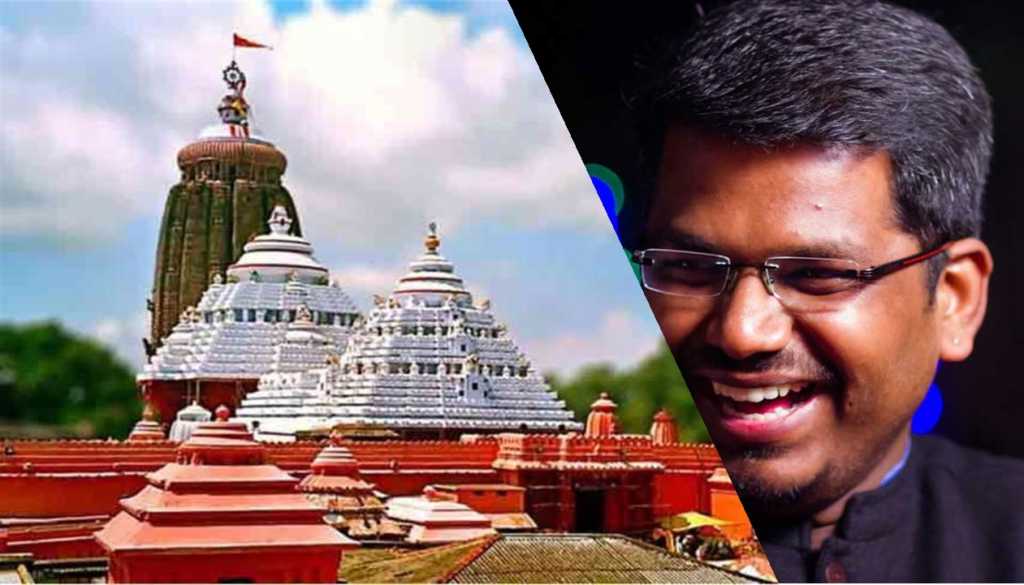In a historic decision, it seems that the controversy surrounding the management of the Jagannath temple in Puri has finally been put to rest. On June 8, 2018 the Supreme Court had taken cognisance of allegations of exploitation of devotees by ‘sevaks’ (priests) at the Jagannath temple in Puri, Odisha. The top court passed a slew of directions in order to avoid any malpractices in the management of Hindu temples.
The order has come just ahead of the annual Rath Yatra. It has also directed the Centre to set up a committee to review temple management practices across the country in the interest of devotees. The committee was required to examine the best practices in temples for replication elsewhere, and ensuring basic facilities for the devotees out of donations received by the temple. This had raised apprehensions of undue government interference in religious matters as far as Hindu temples are concerned. Such apprehensions were legitimate and plausible given that Hindu temples have selectively been subjected to severe government controls and restraints. It has been a result of India’s unique notion of secularism that allows all religious institutions to administer themselves freely but places stringent curbs on Hindu institutions. Matters have been made worse by the way several state governments, especially Andhra Pradesh and Karnataka, have used Hindu Religious and Charitable Endowment (HCRE) Acts in order to take over Hindu temples.
However, the apprehensions and doubts around the Jagannath temple management have been somewhat put to rest today, after the top court heard counsel, J. Sai Deepak who is representing Indic Collective in the Jagannath temple petition before the Supreme Court of India. At the outset, he made it clear that there are two aspects of temple administration, religious and secular. He further contended that both these aspects fall within the ambit of fundamental rights of a religious denomination under Article 26 of the Constitution. Article 26 of the Constitution empowers religious denominations to manage their own religious affairs. At this point, it must be understood that Article 26 deals not only with religious activities but extends to secular activities such as owning and acquiring immovable property.
On the other hand, Article 25 (2) empowers the state to regulate or restrict the secular activities which may be associated with religious practice. This creates an ostensible conflict between the state’s restrictive rights and administrative rights of a religious denomination. Moreover, the distinction is very thin and religious activities are often intricately intertwined with secular activities. As opposed to secular activities, religious activities are the exclusive province of the concerned religious denomination. The arguing counsel drew the bench’s attention towards the thin line difference between religious activities and secular activities. However, the Supreme Court has made it clear that its directions will be implemented in a cautious manner and that it will in no way infringe upon religious activities. Sai Deepak drew the court’s attention to this issue and argued that in light of several apex court judgments, scope of state intervention under Article 25 (2) is limited to curbing mischief and cannot amount to taking over the administration of a religious institution. The Supreme Court has assured that it is aware of this position and that its directions are going to be in consonance with the stated position.
Coming to the issue of donations, Sai Deepak made another elaborate argument that the order dated June 8 should not be interpreted to curb the right of devotees to offer dakshina to sevaks at the Jagannath temple. The court accepted this argument and distinguished between a donation to the temple hundi and donations offered to sevaks. It was accepted by the court as well as the amicus curiae that devotees have the right to offer dakshina to sevaks. In what should have come as a huge jolt to Hindu bashers and the pseudo-seculars, the Supreme Court accepted that its earlier order passed on June 8 is applicable to not only Hindus but all religious denominations. Therefore, the scope of apex court directions must be made applicable to all religious denominations.
1. The Supreme Court's Bench of Justices Shri Adarsh Goel and Shri Ashok Bhushan took up the Jagannath Puri Temple Petition W.P (C) No. 649/2018
— Indic Collective (@indiccollective) July 5, 2018
The petition alleging the harassment of devotees at the Jagannath temple followed by the top court order had raised apprehensions of unwarranted governmental interference. However, with the latest proceedings before the apex court, the controversy has been put at rest. Supreme Court’s observations have also made it crystal clear that there was no intention of placing unnecessary curbs on Hindu temples or treating them in a differential manner. In the eventual turn of events, it is Sai Deepak who has turned out to be a saviour by making impeccable arguments before the top court.
(Clarification: The matter is still pending.)
